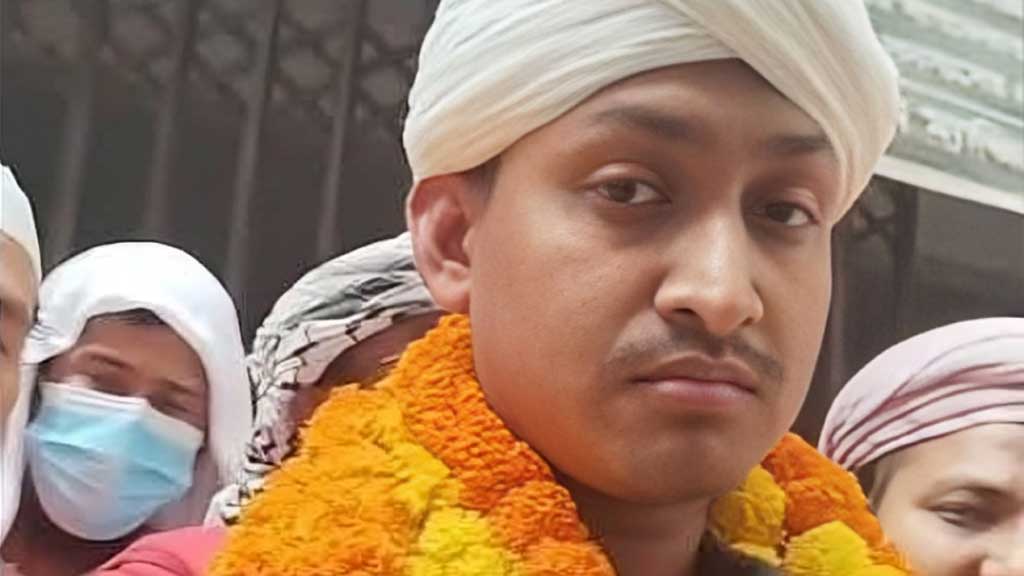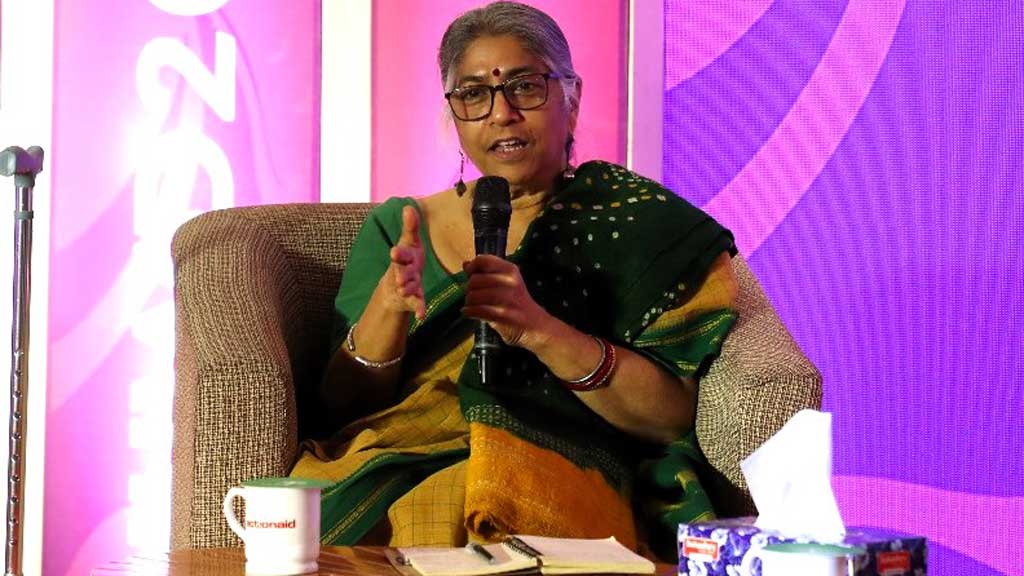Home
+
Published : 08 Mar 2025, 03:04 AM
The crucial role of women in the student-led mass uprising against discrimination and oppression is rapidly fading from public discourse, while blatant misogyny and public humiliation have taken centre stage in a matter of months.
With complaints of women not receiving proportional leadership roles after the shift in the political landscape since the July-August, 2024 protests echoing in the background, the recent surge in public hostility, mob intimidation, and violent behaviour against women has raised fresh concerns.
Against the backdrop of rising gender-based violence in recent years, recent incidents have deeply disheartened women's rights activists. Some claim that open hostility toward women has intensified rather than diminished.

The complaint -- the government is apparently not doing much to address these incidents and prevent such occurrences in future.
Fauzia Moslem, president of Bangladesh Mahila Parishad, a women's rights organisation, said: “Misogyny has become public since the Mass Uprising. It was inconspicuous before. Violence was still present before, with no political rights for women, no social rights.”
“But a moral policing has been under way since the Uprising due to misogyny. ‘You can’t wear such dresses, can’t walk like this, can’t put on Tip [forehead paint], you’ll be beaten to death if you play football, houses would be demolished’."
“Another issue has been added to all that we’ve been working on -- misogyny. It’s spread in a way it didn’t exist before. I can tell that much is different,” she added.
Officials of the interim government say a “quick response team” has been assembled to provide support to the victims.
Mamtaz Ahmed, senior secretary of women and child affairs ministry, said: “We’ll definitely try to resolve animosity towards women. But this can’t be done alone. We need a collective effort.”
On the quick response unit, she said: “This is a fresh project. But operation has still not started. It’s still at an initiative stage.”

RISING MISOGYNY: A GROWING CONCERN IN BANGLADESH
A week before International Women's Day, an incident in Dhaka’s Lalmatia highlighted growing hostility toward women. A mob attacked two university-going women over smoking in public—yet another blatant display of misogyny.
Then, on Wednesday, a female student at Dhaka University was harassed by Mostafa Asif Arnob, an assistant binder at the university's central library, over her attire. The incident shed light on another dimension of gender-based hostility.
After the victim filed a case, Asif was arrested, sparking protests at Shahbagh Police Station under the banner of "Towhidi Janata", demanding his release. Shockingly, after securing bail the next day, he was welcomed with a garland of flowers and a ceremonial turban.

HOSTILITY AGAINST WOMEN IN SPORTS
On Jan 28, in Joypurhat’s Akkelpur, a group of people vandalised a tin fence to disrupt a women’s football match, and the organisers were forced to cancel the game.
On the same day, in Dinajpur’s Hakimpur, a women’s football tournament was halted after 10 people were injured in clashes between "Towhidi Janata" and the organising committee. The Chief Advisor’s Office, or CAO, later ordered the match to be rescheduled.

ESCALATING VIOLENCE AGAINST WOMEN
In a statement on Wednesday, the University Teachers’ Network said: "Since the Uprising, incidents of sexual harassment, violence, and misogyny against women have increased. Women are being humiliated in different spheres of society.
“Every case of injustice must be properly investigated, and the perpetrators punished."
Women’s rights activist Fauzia said, "This is an attempt by anti-women groups to push women backward.
“Women must speak up against this, as should society and the state. The state has declared gender equality; now it must enforce it."
Violence against women has been rising over the years. According to the Violence Against Women Survey 2024, released on Feb 28, the rate of sexual violence against women has increased to 28.5 percent, up from 27.2 percent in 2015.
A survey by the Bangladesh Bureau of Statistics, or BBS, revealed that while sexual violence has increased, physical violence has slightly decreased to 46.7 percent, down from 49.6 percent in the previous survey.

WOMEN FACE HARASSMENT IN PUBLIC, AT WORK
Between late February and early March last year, the human rights organisation Ain o Salish Kendra, or ASK, conducted a study involving 311 men and women from Rajshahi, Gazipur, the garment and transport sectors, and civil society.
The study, published on Feb 5, found that 49 percent of women had experienced physical, psychological, or sexual violence.
According to them, 90 percent of women face harassment in the workplace and public transport. However, fear of social stigma and institutional indifference often prevent them from reporting it.

WOMEN’S ROLE IN THE UPRISING AND SUBSEQUENT EXCLUSION
During the July 14 protests at Dhaka University’s Rokeya Hall, sparked by a controversial remark from former prime minister Sheikh Hasina, female students played a pivotal role in fuelling the movement.
The Aug 5, 2024 mass uprising led to the fall of the Awami League government, with Hasina fleeing to India.
Following the change of power, an interim government led by Muhammad Yunus took power, forming 11 reform commissions, including one focusing on women's rights.
At a Feb 27 event hosted by ActionAid Bangladesh, Women’s Affair Reform Commission chief Shireen Parveen Haque said: "Women were pressured to step down from leadership roles after the Uprising."
"In the July movement, women were the first to step out of Rokeya Hall. But why did they withdraw so quickly afterward? No one willingly gave up their place; they were forced out."
CALL FOR SYSTEMIC CHANGE
Veteran activist Shireen told bdnews24.com on Thursday, "Misogyny is nothing new in this society. We must learn to recognise, respect, and treat women as equal humans."
She emphasised that misogyny must be addressed in all reform commission recommendations.
"Women’s issues cut across all sectors. We must analyse recommendations from other commissions and ensure gender considerations are not overlooked."
On Thursday, the Ministry of Women and Children Affairs held a meeting with the Women’s Affairs Reform Commission.
Advisor Sharmin Murshid proposed a broad-scale campaign against misogyny. However, the commission declined to disclose the meeting's decisions, stating that the ministry would release an official statement.

When asked about government measures to combat misogyny, Joint Secretary Prakash Kanti Chowdhury of the women and child affairs ministry said: "We have created a Quick Response Team to immediately intervene in cases of violence against women. We ensure victims receive proper legal and medical assistance."
"This initiative has been piloted successfully in several areas, and we are now working to institutionalise it as a regular programme."
A POLITICAL SOLUTION TO MISOGYNY?
Women’s rights leader Fauzia urged those who led the mass uprising to be held accountable for recent incidents of misogyny.
"They fought for an equal society, but discrimination against women remains. Violence against women undermines any vision of equality."
The National Citizen Party, or NCP, a newly formed political group led by former student-led protest leaders, has pledged to change political culture to curb misogyny.
NCP Senior Joint Convener Samanta Sharmin told bdnews24.com, "The tradition of publicly shaming and politically exploiting women must end. We need to change the political system itself."
"Many political parties don’t take this issue seriously. But if we transform the political culture, we can bring more women into leadership roles."
She emphasised, "NCP promotes inclusive politics. Women make up 51 percent of voters—they must not be seen merely as a voting bloc."
"We will focus on education, healthcare, and mental health policies to help women recover from post-uprising trauma."
Fauzia, however, argued that the women’s movement must remain non-partisan:
"Women’s rights activism is an ongoing struggle—it existed before the uprising and will continue. A true women's movement cannot be confined to party politics."